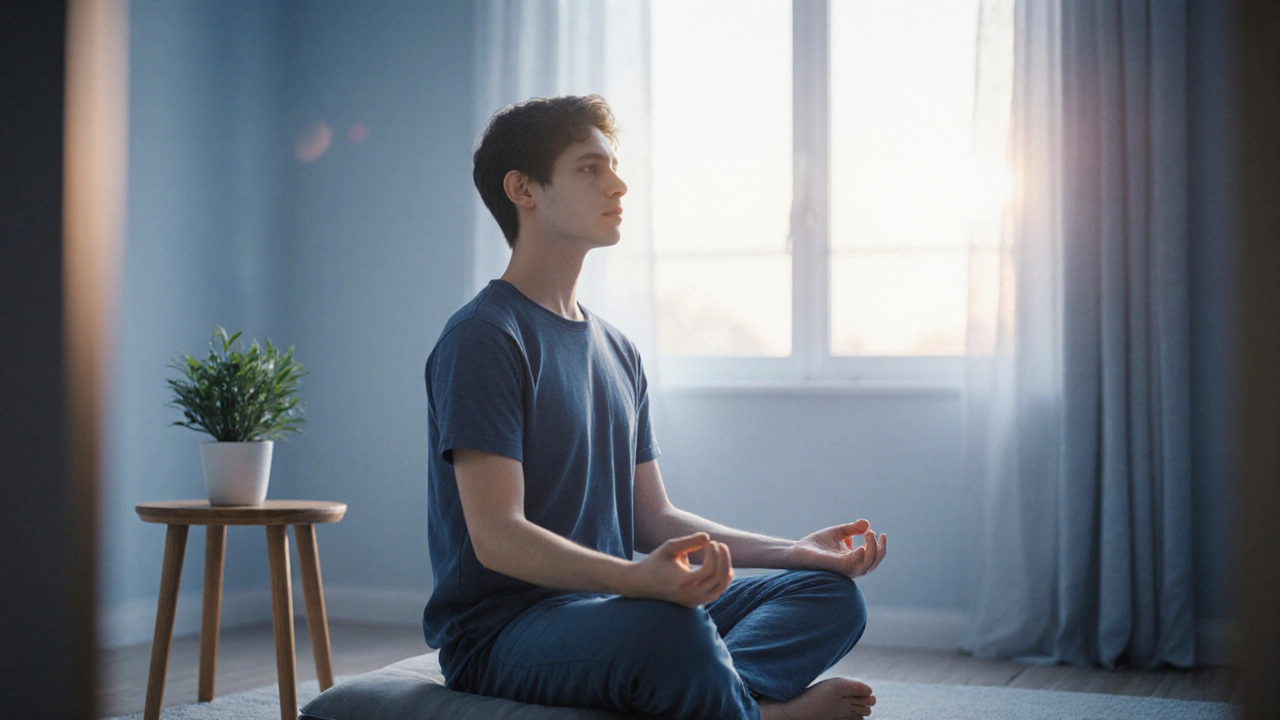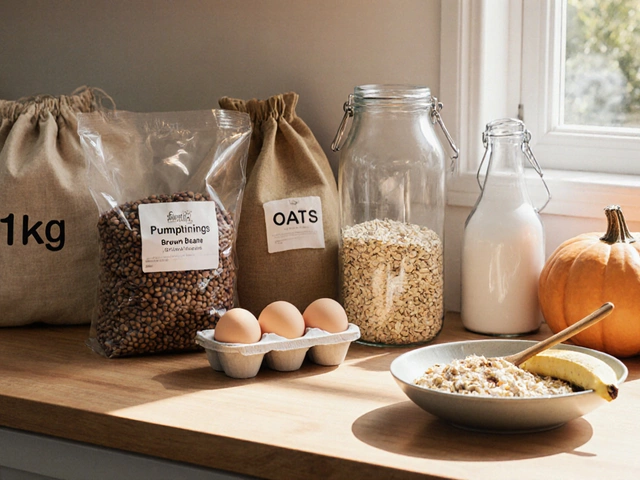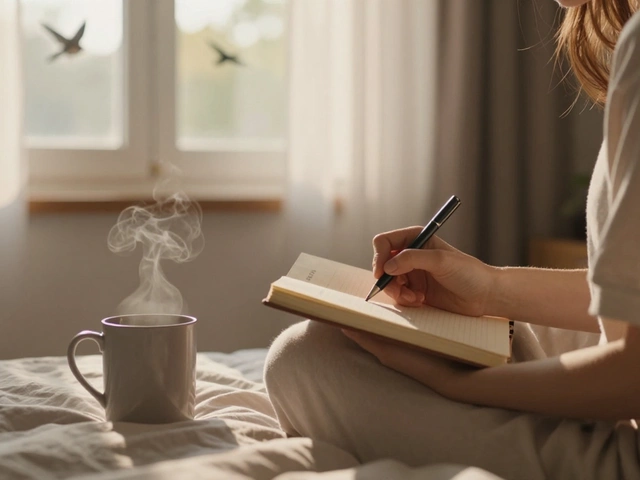Mindful Meditation: How Short Daily Practices Transform Stress, Focus, and Emotional Wellbeing
When you hear mindful meditation, a practice of paying attention to the present moment without judgment. Also known as mindfulness, it doesn't require chanting, special cushions, or hours of silence—just a few minutes a day to notice your breath, your body, or what's happening around you. This isn't new-age fluff. It's a tool backed by neuroscience and used by doctors, teachers, and busy parents to handle stress before it takes over.
What makes mindful meditation work isn't the length of time—it's consistency. Studies show that just five minutes a day can lower cortisol, the main stress hormone, and help your brain shift from reacting to responding. That’s why people who practice regularly say they feel calmer in traffic, less overwhelmed at work, and more patient with their kids. It’s not magic. It’s training. Your brain gets better at noticing when you’re spiraling and gently pulling you back. And that skill? It shows up everywhere—in how you talk to yourself, how you handle conflict, even how you sleep.
Related practices like mindfulness practice and stress reduction often get mixed up with relaxation techniques, but they’re different. You don’t have to feel relaxed to be mindful. Sometimes you’re angry, tired, or anxious—and that’s exactly when it matters most. Mindful meditation teaches you to sit with discomfort instead of running from it. That’s why it’s so powerful for emotional wellbeing. It doesn’t fix your problems, but it changes how you carry them.
You’ll find articles here that cut through the noise. No 30-minute guided sessions you’ll never stick to. No apps that charge $20 a month. Just real talk: how to start without pressure, why five minutes beats an hour you never do, and how to tell if you’re actually doing it right. Some posts break down the science behind focus improvement. Others show you how to weave it into your morning coffee, your commute, or even while washing dishes. You’ll also see how it connects to other habits—like decluttering your space, eating mindfully, or choosing clothes that don’t add to your mental load. This isn’t about becoming a monk. It’s about becoming more yourself—calmer, clearer, and less reactive.
Mindfulness Practices Explained: Types, Benefits, and How to Get Started
Categories
RECENT POSTS
How to Eat Less Than $20 a Week on Healthy Meals
Learn how to eat healthy, filling meals on under $20 a week using simple, affordable ingredients like beans, rice, eggs, and seasonal veggies. No junk food. No stress. Just real food that works.
Is The Alchemist a Self‑Help Book? Explained
Explore whether Paulo Coelho's The Alchemist qualifies as a self‑help book, compare its themes to classic self‑help guides, and learn how to use the novel for personal growth.
Optimal Order for a Complete Skin Care Routine (2025 Guide)
Learn the exact step‑by‑step order for a morning and evening skin care routine, why each step matters, and how to customize for your skin type.
What Falls Under Mental Wellbeing? A Simple Breakdown of Key Areas
Mental wellbeing includes emotional health, stress management, connection, self-care, purpose, movement, boundaries, and self-compassion. It's not about being perfect-it's about showing up for yourself daily.
What Do Minimalists Do With Gifts? Practical Ways to Receive Without Clutter
Minimalists don't reject gifts-they reframe them. Learn how to receive thoughtfully, let go guilt-free, and turn unwanted presents into meaningful connections without adding clutter to your life.





